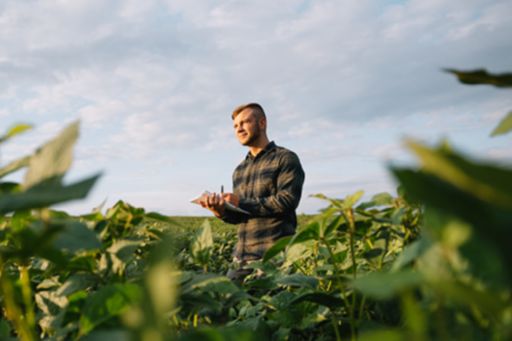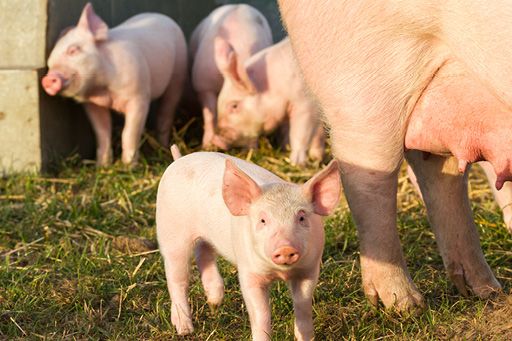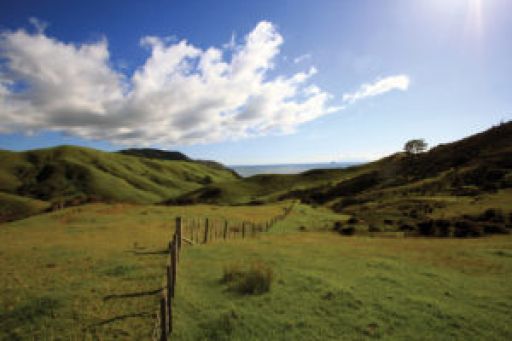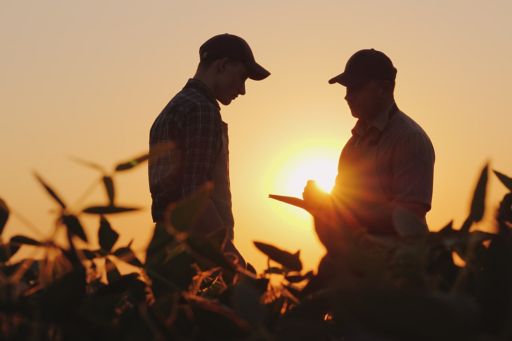Week in Review
This week in New Zealand, dairy prices increase yet again with a 4.1% gain. While farmers may expect even stronger returns, these values may now be pushing beyond what some countries are able to pay for this important nutritional staple.
Labour shortages have been discussed at length over the past weeks and months and this has only strengthened further this week. Requests have been made for milk tanker drivers to provide a life-line to contractors, health and safety concerns grow across the workforce for the upcoming harvests, and yet further ongoing MIQ frustrations are voiced.
We also hear of a $110m iwi fin fish farming proposal in Coromandel receiving council support, the impact of supermarket food limits on families, and how new lending rules challenging retail lending may be benefiting the rural sector
Internationally, more research has been released on the impacts of climate change including the slow suffocation of fisheries and major shifts expected in the worlds crops. Sri Lanka’s Government mandated attempt at becoming an organic producing nation has caused widespread crop failure, food shortages and economic crisis with farmers set to receive $200m compensation. We also see an accelerating vision AI identifying early cow lameness across farms in the UK and Europe, a forecast for the Australian agribusiness sector in 2022 and new infographics detailing the ongoing extent of hunger and food insecurity across the world.
Previous issues
To read previous editions of Field Notes please click here.
Spotlight Stories
International Spotlight:

Tesco defeat at EU’s highest court exposes danger of food labels getting lost in translation [01 February, Food Navigator]
A legal court case dating back to 2016 involving Tesco’s description of chocolate sold in its stores in the Czech Republic reportedly demonstrates the risks of multilingual labelling and computer translations. The Court of Justice ruled that food marketers must list all food compound ingredients unless the compound ingredient is labelled in the official language version. It added that the description must be written in a language that is “easily understood by consumers of the Member state where the food in question is placed on the market.”
Tag: International, Policy and Regulation, Food Marketing
Environment & Emissions Spotlight:

Farmers offering to pay $137m for their greenhouse pollution. Is that fair? [31 January, Stuff]
The farming industry-government partnership has proposed to pay for agricultural emissions, but Climate Change Minister James Shaw stressed the price on agricultural gases “must be a significant driver of change”. The partnership reportedly uses roughly NZ$110 for every tonne of methane produced by farms and $1126 for every tonne of nitrous oxide, raising $137 million in its first proposed year (2025).The partnership says by investing at least $31m from the fund, the Government’s emissions-cutting goals could be met.
Tag: Environment & Emissions, Farmers & Producers, Policy and regulation, Farming Systems
This Week's Headlines

Sri Lanka to pay $200m compensation for failed organic farm drive [26 January, Aljazeera]
Sri Lanka has announced compensation for over one million rice farmers who experienced crop failure as a result of a failed plan to create the world’s first 100% organic farming nation. Following farmer protests and crop failures, restrictions on agricultural chemicals such as fertiliser were lifted as the country faces severe economic crisis. The government will reportedly pay 40,000 million rupees (US$200m) to farmers whose harvests were affected by the chemical fertiliser ban and spend another $149m on a price subsidy for rice farmers.
Tag: International, Farming Systems, Policy and regulation

‘Beyond the usual suspects’: Report scrapes social media to identify emerging trends [31 January, Food Navigator]
Tastewise’s AI-powered real-time food intelligence solution has identified top consumer food and beverage trends for 2022 based on over 78,000 restaurants and delivery menus, 20 billion social interactions and 115,000 home recipes online. The focus on ingredient sourcing rather than packaging with sustainable food and beverage, regional Asian cuisines, non-alcoholic beers, gins and cocktails, adaptogens for functional health, floral flavour profiles and sensory intrigue, and sustainable gourmet food and beverage are among the trends expected to have a big impact this year.
Tag: International, Food Marketing

NZPork urging Kiwis to take notice of new Country of Origin labelling regulations [01 February, NZ Herald]
With the introduction of new food labelling regulations on February 12, NZPork urges Kiwi consumers to look for labels indicating that pig products are 100% born and raised in New Zealand. According to the new requirements, fresh pork and cured pork for retail sale must now be labelled with the country (or countries) where the animal was grown. “This will help provide consumers with the confidence that they are 'buying local', knowing they are supporting Kiwi farmers and purchasing pork raised to high levels of animal welfare,” says NZPork chief executive David Baines.
Tag: Pork, Policy and regulation, Food Marketing
Top stories
$110m iwi fin fish farming push for Coromandel wins council support [26 January, Stuff]
Thames Coromandel District councillors have approved a submission by Pare Hauraki Asset Holdings Limited to establish and operate a marine farm for fin fish and other marine species. The site is expected to sustain yearly production of around 8000 tonnes of, potentially worth more than NZ$100 million in exports and hundreds of new jobs.
Tag: Aquaculture, Fisheries, Policy and regulation
SWAG announces new entity to drive growth [27 January, Farmers Weekly]
Strong Wool Action Group’s (SWAG) 16-month project to devise a plan to drive New Zealand’s strong wool sector growth will kick-off in July, creating the new entity called Wool Impact New Zealand. The entity’s purpose is to facilitate innovation, support demand growth and enable a unified voice for strong wool in NZ to grow existing demand and generate new demand for strong wool consumer brands, products and services.
Tag: Wool, Agribusiness
Ukraine incursion unlikely to cause dairy pain [27 January, Rural News Group]
According to ASB, despite the likelihood of a Russian entry into Ukraine, the dairy industry is unlikely to experience a repetition of 2014 when conflict between the two nations resulted in a drop in dairy prices. The bank’s Commodities Weekly report says global diary supply is currently “looking tight and the appetite among buyers is ferocious”. However, in 2014 “conflict took place when global dairy production was ramping up following good weather and the lifting of European production caps, all whilst Chinese purchases were slowing.”
Tag: Agribusiness, International, Dairy
Covid 19 Omicron: Horticulture, meat processors push for private RAT orders to protect supply chains [27 January, NZ Herald]
The horticulture and meat processing industries are urging the Government to allow private importation of rapid antigen tests, citing concerns that Covid-19 testing capacity may impact staffing. Chief executive Nadine Tunley outlined the importance of maximising the number of people available to keep the supply chain operating during the Omicron response. "We have strenuously pointed out to the government that our industry cannot withstand any further labour shortages as growers will be faced with having to leave vegetables in the ground and fruit on trees,” Tunley adds.
Tag: Horticulture, Covid-19
Demand for ‘extreme aged’ meat is exploding and Alliance is cashing in [01 February, Stuff]
Meat processor Alliance Group says demand for its “extreme aged” meat is “exploding,” with sales to local restaurants up 30% in the last two years and wait lists on its Pure South online shop. Alliance says that New Zealand beef is generally aged between two and six weeks, but its extended period increases the meat’s flavour complexity, tenderness and texture. The company says a pack of two large ribeyes aged for 21 days costs NZ$62, and up to 5kg of 55-Day Aged Ribeye costs $215.
Tag: Red Meat, Food Innovation, Food Marketing
New lending rules could benefit sector [27 January, Farmers Weekly]
According to the Real Estate Institute’s rural spokesperson Brian Peacocke, one banker found his bank loan approvals had fallen by a quarter since the beginning of December when new lending rules on residential borrowers came into force. However, the new rules showed no signs of hitting rural lending. Managing director debt of NZ Agri Brokers Scott Wishart says the new legislation could even be supportive of more lending flowing to the sector after a lean couple of years when the main trading banks had encouraged farmers to reduce debt.
Tag: Policy and regulation, Farmers & Producers, Agribusiness
Dairy product prices at 'exceptionally high levels' may be out of reach of some consumers, ANZ says [01 February, Stuff]
ANZ has increased its forecast for Fonterra Co-operative Group's farmgate milk price to farmers for this season and next by 50 cents and 40 cents, respectively. However, the bank’s agricultural economist Susan Kilsby warns that prices are now so high that “demand from North Africa/Middle East, and parts of South East Asia may ease.” China's demand, on the other hand, is less price-sensitive, but any fall in demand from this big dairy importer would have a significant influence on the dairy markets," Kilsby says.
Tag: Dairy, Trade & Exports, International
OECD pushes for higher carbon value [01 February, Farmers Weekly]
OECD is raising concerns that New Zealand will not achieve its zero carbon goals at current carbon prices or emission reduction rates, calling for “complementary measures” to help address market failures, including environmental taxes, waste levies and greater vehicle electrification. However, Federated Farmers president and climate change spokesperson Andrew Hoggard says any significant rise in the carbon prices will only put greater pressure on the entire food supply system and also play into higher fuel, distribution and ultimately food costs in the future.
Tag: Environment & Emissions
Less facetime costing NZ exporters [02 February, Rural News Group]
According to former New Zealand special agricultural trade envoy Mike Petersen, one of the biggest problems Covid-19 is causing for NZ is preventing politicians and business people having face-to-face contact with their counterparts in the nation’s major markets. Petersen says business people are frustrated at not being able to get overseas and the goodwill that has been built up over the years is starting to disappear. This is often due to changes of personnel in both NZ and overseas, Petersen adds.
Tag: Trade & Exports, Covid-19, Agribusiness
Season looking good for food, beverage and agribiz [31 January, Blue Notes]
It is reported that three significant themes are expected to dominate Australia's food, beverage, and agribusiness (FB&A) sectors in 2022, each of which represents the continuation of concerns already transforming the sector today. The key themes are the “second-order” effects of the Covid-19 pandemic, sustained capital inflow into the FB&A sector, and sustainability. Those businesses that are ahead of the trends will reportedly see real benefits.
Tag: International, Agribusiness
Supermarket food limits mean families are shopping more often, but is that ideal during an Omicron outbreak? [02 February, Stuff]
Due to limits on particular food items, families are being forced to return to the supermarket after their main weekly or fortnightly shopping visits to top up. Although it is usual practice to place restrictions on food items when supply chain issues occur, experts warn that doing so during an Omicron outbreak could worsen the spread with larger families struggling with limits such as ‘two cans of spaghetti’ for a family of five. Foodstuffs spokeswoman Emma Wooster said gaps on the shelves and queues at the supermarket could be caused by shoppers buying more than was needed.
Tag: Food security, Policy and regulation
Infographic: Hunger and food insecurity in maps and charts [01 February, Aljazeera]
According to the 2022 UN Global Humanitarian review, as many as 811 million people (10% of the world’s population) go to bed hungry each night, which is 161 million more than the previous year due to a combination of factors such as conflict, the impact of Covid-19, extreme weather and more. Afghanistan is amongst countries with the highest levels of food insecurity worldwide, with at least 37.7 million of its population of 40 million people (93%) who do not have enough food.
Tag: International, Food security
Climate change has likely begun to suffocate the world's fisheries [01 February, Phys Org]
A new study has found that approximately 70% of the world's oceans could be suffocating from a lack of oxygen by 2080, and researchers say it is deeply concerning and adds to the urgency to engage meaningfully in mitigating climate change. The middle layer of the ocean is particularly vulnerable to deoxygenation and “is very important to us because a lot of commercial fish live in this zone," says Yuntao Zhou, an oceanographer at Shanghai Jiao Tong University and lead study author. "Deoxygenation affects other marine resources as well, but fisheries [are] maybe most related to our daily life."
Tag: International, Fisheries, Environment & Emissions
Warmer seas leads New Zealand King Salmon to slash earnings [01 February, RNZ]
Warmer sea temperatures have resulted in increased fish deaths and a decrease in New Zealand King Salmon revenue from between NZ$10.5 million and $12.5 to $6.5 million and $7.5m in the current financial year. "To minimise this impact, we are evaluating options to accelerate our existing harvest schedule starting this week," the company said. It also stated that it applied for an open farmed resource consent in the Cook Strait's cooler, deeper, and quicker current conditions, with a decision due in a few months.
Tag: Fisheries, Environment & Emissions
Why cows may be hiding something but AI can spot it [01 February, BBC]
Co-founder and chief executive of CattleEye Terry Canning says his firm’s technology automatically detects early signs of lameness in cattle, providing improvements in animal welfare and a reduction in emissions. According to the firm's research, the proportion of animals with mobility impairments reduced from 25.4 percent to 13.5 percent when CattleEye was introduced to a Welsh dairy farm with 300 cows for six months. Canning mentions that “if you can reduce lameness levels by 10% on a farm, there's a saving of half a tonne of carbon per cow per year.”
Tag: International, Agritech, Farming Systems
Climate change: Key crops face major shifts as world warms [28 January, BBC]
A new study suggests that parts of the world suitable for growing coffee, cashews and avocadoes will change dramatically as the planet heats up. Coffee is the crop most sensitive to high temperatures, according to the report, with half of the land used for high-quality coffee expected to be unproductive by 2050. Areas of the world highly suitable for growing cashews will increase by 17%, while avocado-growing areas in Mexico will increase by over 80%. On the other hand, Peru will lose around half of its land usable for avocado growing.
Tag: International, Environment & Emissions, Arable, Horticulture
Get in touch
| Audit – Auckland Ian Proudfoot 09 367 5882 iproudfoot@kpmg.co.nz |
Management Consulting – Wellington Justine Fitzmaurice 04 816 4845 jfitzmaurice@kpmg.co.nz |
Agri-Food – Auckland Jack Keeys 09 363 3502 jkeeys@kpmg.co.nz |
Private Enterprise – Hamilton Hamish McDonald 07 858 6519 hamishmcdonald@kpmg.co.nz |
| Agri-Food – Auckland Andrew Watene 09 367 5969 awatene@kpmg.co.nz |
Consultant – South Island Genevieve Steven 03 307 0761 gsteven@kpmg.co.nz |
Farm Enterprise – South Island |
Field Notes Administrator |




